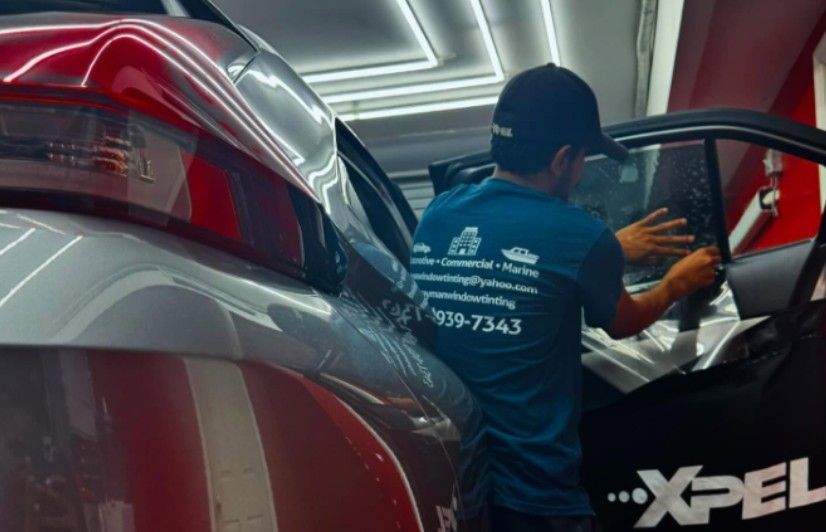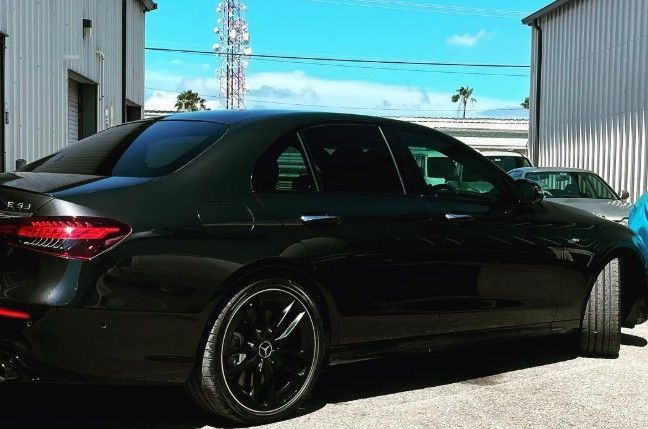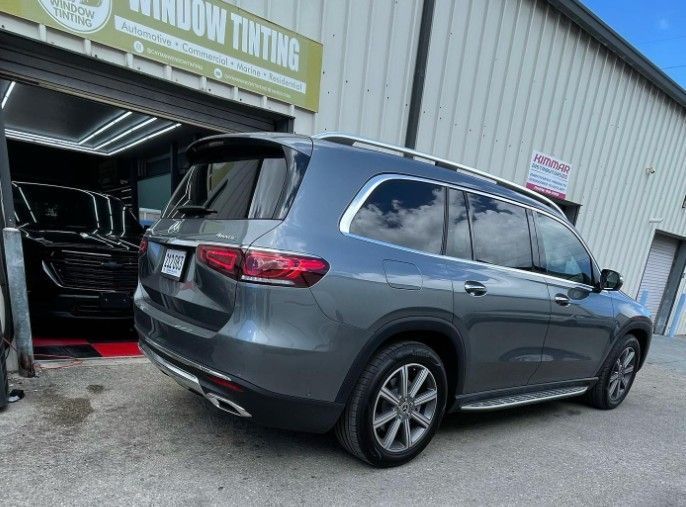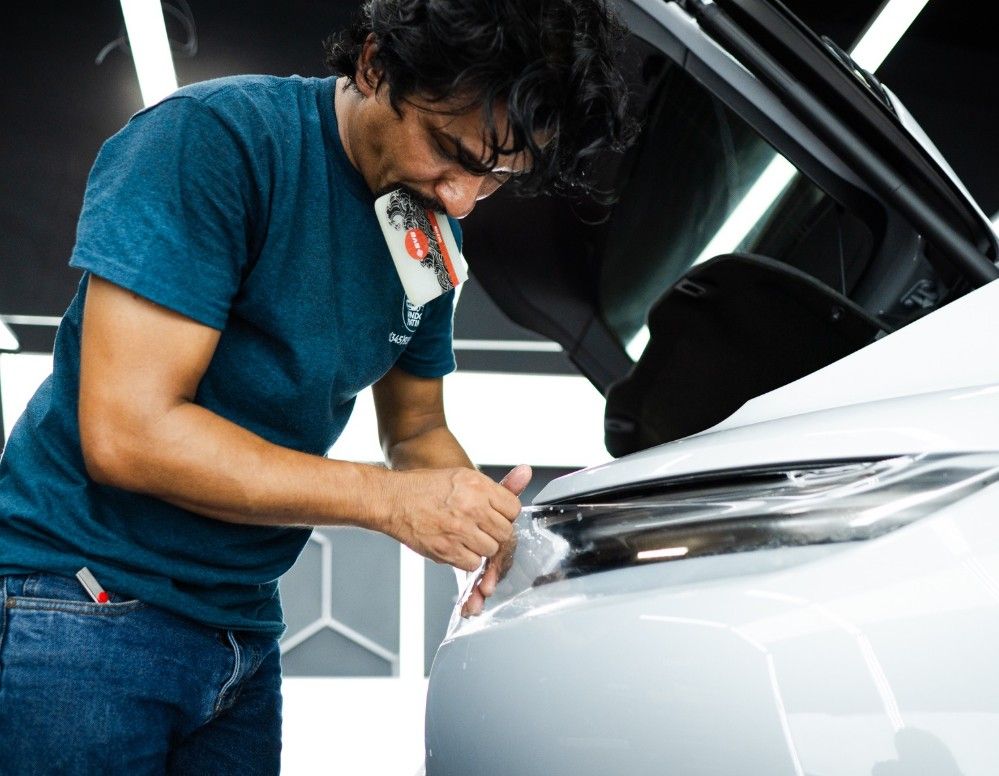Are you considering tinting your car windows but unsure about the cost? Car window tinting can be a valuable investment for both the aesthetics and functionality of your vehicle, but understanding the pricing can be overwhelming. This comprehensive guide will help you break down the costs, so you can make an informed decision and avoid unexpected charges.
In this guide, we will explore various aspects of car window tinting costs, including different types of window tints, factors that affect pricing, and the difference between professional and DIY installation. Whether you're in the Cayman Islands or another location, this article will provide everything you need to know about window tinting costs. We’ll help you navigate the options and budget effectively, ensuring your car’s tinting meets both your needs and expectations.
1. Types of Window Tints Available (Dyed, Metalized, Ceramic, Hybrid, etc.)
There are various types of window tints available, each offering distinct advantages and varying in cost. Understanding the differences between these types can help you determine which one best suits your needs and budget.
- Dyed Window Tint: This is the most basic and cost-effective option. It’s made by applying a layer of dye to the film, which absorbs heat and blocks UV rays. While affordable, dyed tints tend to fade over time, and they do not provide the same level of heat reduction as more advanced options.
- Cost: This is the least expensive option, making it ideal for those on a tight budget.
- Metalized Window Tint: Metalized tint uses tiny metallic particles to reflect UV rays and heat. It is more durable than dyed tint and provides better heat rejection. However, it can interfere with GPS and cell phone signals, which is something to consider.
- Cost: Typically higher than dyed films but still affordable compared to ceramic films.
- Ceramic Window Tint: Ceramic films are the highest quality and most expensive option. They use ceramic particles to provide superior heat rejection and UV protection without interfering with signals. They also offer enhanced durability and clarity.
- Cost: As the premium option, ceramic films come at a higher price, but they provide the best overall performance and longevity.
- Hybrid Window Tint: Hybrid tints combine elements of dyed and metalized films. They offer better heat rejection than dyed films and less signal interference than metalized films.
- Cost: Usually falls between dyed and ceramic options, providing a good balance of performance and affordability.
When selecting the right type of window tint, the material you choose can greatly impact the final cost. While ceramic tints are the most expensive, they offer the best performance and long-term value.

2. Different Film Materials and How They Affect Cost
The material of the film used for window tinting plays a significant role in determining the price. Higher-quality materials provide better benefits in terms of heat rejection, UV protection, and durability, which often justifies the higher cost.
- Standard Films (Dyed, Metalized): These are typically more affordable and may be sufficient for those primarily interested in aesthetic enhancement.
- Premium Films (Ceramic, Hybrid): These are engineered for performance, providing better UV blocking, heat reduction, and durability. While these options are more expensive, they offer long-term value in terms of comfort and vehicle preservation.
- High-Performance Films: For those looking for the best in terms of heat rejection and UV protection, premium films made with advanced materials like ceramics or carbon are ideal. These films are designed to enhance the driving experience, especially in hot climates like the Cayman Islands.
The choice of material significantly impacts both the performance and cost of your window tinting. Understanding the benefits of each can help you select the best material for your budget.
3. The Role of UV-Blocking and Heat-Reduction Features in Tinting
One of the main reasons car owners opt for window tinting is the added protection it offers from the sun’s harmful UV rays. Tinted windows block a significant amount of UV radiation, protecting the interior of your vehicle from fading and cracking. More advanced films, like ceramic tints, offer superior UV blocking and heat reduction, which can make your car more comfortable on hot days.
- UV Protection: Protecting your skin from harmful UV rays is essential for reducing the risk of skin cancer and premature aging. Ceramic and metalized tints are especially effective at blocking UV rays.
- Heat Reduction: With a proper tint, the amount of heat entering your car can be reduced significantly, which can help maintain a comfortable interior temperature and reduce the load on your air conditioning system. This can also extend the lifespan of your vehicle’s interior materials.
Window tinting provides not only aesthetic value but also practical benefits like UV protection and heat reduction, making it a worthwhile investment for both comfort and long-term vehicle maintenance.
4. Why Should You Tint Your Car Windows?
Tinting your car windows isn’t just about style; it offers a range of functional benefits as well. Here’s why you might consider having your car windows tinted:
- Privacy and Security: Tinted windows help protect your belongings from being visible to passersby, reducing the likelihood of theft.
- Heat and UV Protection: As mentioned earlier, tinting provides superior heat and UV protection, helping to keep your car cooler and preventing the interior from fading over time.
- Aesthetic Appeal: A sleek, tinted car looks more polished and sophisticated. It can also help reduce glare from the sun, making your driving experience more comfortable.
- Regulatory Compliance: In some regions, window tinting can help you stay within legal limits for visibility and UV exposure.
The benefits of window tinting go beyond just appearance. It’s an investment that improves your vehicle’s comfort, appearance, and resale value while protecting your health and privacy.
5. Factors that Affect the Cost of Tinting
Several factors contribute to the overall cost of window tinting. Understanding these elements will help you make a more informed decision and budget for the project.
Film Type:
The type of tint you choose directly affects the cost. Ceramic and hybrid films are the most expensive, but they offer the best performance in terms of heat and UV rejection. Basic dyed tints are the most affordable but offer fewer benefits in terms of durability and protection.
Car Type & Size:
The size of your vehicle impacts the amount of film needed and the complexity of the installation. Larger cars, such as SUVs and trucks, will generally cost more to tint than smaller vehicles like sedans.
Tint Percentage:
The darkness of the tint you choose can also affect the price. Tints with a lower percentage (darker tints) can be more expensive due to the additional materials and labor required for installation.
Location:
Prices for window tinting may vary depending on where you are located. In the Cayman Islands, for example, the cost of tinting might be slightly higher due to factors like shipping and availability of certain materials.
Factors such as film type, vehicle size, and tint percentage all play a critical role in determining the cost of your window tinting service. Knowing what affects pricing can help you make an informed choice.
6. Professional Installation vs. DIY
While DIY tinting kits are available, opting for professional installation ensures a higher quality finish and longer-lasting results. DIY kits may seem like an affordable option, but improper installation can lead to bubbling, peeling, or uneven tint. A professional service guarantees clean, smooth installation with warranty coverage.
While DIY tinting can save you money upfront, professional installation provides better results and peace of mind, ensuring your tint performs optimally for years to come.

7. Average Cost Breakdown in the Cayman Islands
The cost of tinting your car windows in the Cayman Islands can vary significantly depending on several factors, such as the type of vehicle, the tint film selected, and whether you opt for professional installation.
- Low-End Costs: For smaller vehicles or basic tinting, prices may start as low as
$150 to $200 for a sedan. This cost typically covers dyed or metalized films, offering a more affordable yet functional solution for your car.
- High-End Costs: Premium tinting packages, such as ceramic films for larger vehicles or full coverage (including windows, windshield, and sunroof), can range from
$400 to $800 or more, depending on the complexity of the job and the type of film used. Ceramic tints, which provide superior heat rejection and UV protection, tend to be on the higher end of the price spectrum.
Understanding the cost breakdown can help you decide what’s best for your budget and vehicle needs. Whether you're looking for a basic tint or a more advanced, long-lasting solution, knowing the cost factors will enable you to make an informed decision based on your preferences and requirements.
Note: These prices are just estimates and may vary depending on the specific details of your vehicle, the tint film chosen, and the installer. Always get a personalized quote from your tinting provider for the most accurate pricing.
Who Should Get Their Car Windows Tinted?
Car window tinting isn’t just for certain types of drivers; anyone can benefit from the advantages it offers. Whether you're a professional who spends long hours on the road, a parent concerned about UV exposure for your children, or someone looking for added privacy and security, tinting is a valuable option. At Cayman Window Tinting, we provide customized solutions tailored to your specific needs, ensuring you get the best tinting experience possible.
Conclusion
Car window tinting is a valuable investment that offers a wide range of both aesthetic and practical benefits. Not only does it enhance the look of your vehicle, giving it a sleek, modern appearance, but it also provides essential protection for your car’s interior. With the harsh sun in the Cayman Islands, tinting your windows helps protect your upholstery from fading and cracking due to UV exposure, preserving the resale value of your car. Additionally, the tint helps keep the cabin cooler by blocking out heat, which can improve comfort during those hot, sunny days. By reducing glare from the sun, window tinting also ensures a safer driving experience, preventing eye strain and allowing for clearer visibility. When considering window tinting, understanding the factors that influence the cost is crucial. The type of film you choose, the size of your vehicle, and whether you opt for professional installation or a DIY kit can all significantly impact the price. High-quality films like ceramic tints offer superior heat and UV protection but come at a higher cost compared to more basic options like dyed or metalized films. Vehicle size also plays a role; larger cars or SUVs require more film and labor, which can increase the overall cost. While DIY kits can save money upfront, professional installation from a trusted provider like Cayman Window Tinting ensures better results, with no risk of bubbling or peeling over time.
Whether you're in the Cayman Islands or beyond, tinting your car windows is a smart decision for improving both your vehicle’s functionality and appearance. Cayman Window Tinting offers a wide selection of high-quality films tailored to meet your specific needs, providing expert installation that guarantees long-lasting results. With an understanding of the factors that influence pricing, you can confidently choose the right tinting solution for your car, ensuring both protection and comfort on every drive.




